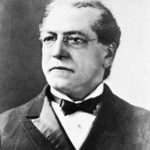Some years ago one of those correct persons who infest modern life pointed out to a bottling company that the label on one of their jams was politically incorrect. The label included an illustration of a ‘dark-skinned’ puppet popular for more than a century called a ‘Gollywog’. The lobbies moved in, the righteous demonstrated, normally sleepy MPs awoke to the horror of it all and made clanging speeches. The Robertson Company had to remove the offensive Gollywog from labels and advertising. Political correctitude had won again.
Since this destructive censorship started things have got out of control and are therefore funnier and funnier. Now, for instance, one must pay attention to artificial taboos no-one had ever noticed before:
If you are bald, you are follicularly challenged;
Deaf – aurally challenged;
Mentally ill – cerebrally challenged:
Blind – visually challenged;
Stupid – intellectually challenged;
A dwarf – vertically challenged;
Lame – physically challenged;
Poor – financially challenged
Crooked – ethically challenged;
Illegitimate – parentally challenged.
(note: is an atheist is religiously challenged? I really do not know)
In English, relations between Britain and France for a thousand years (especially between 1940 and 1945) has produced a situation in which the British consider French anything bogus, over-rated, illegal, dubious, garlicky, immoral, undesirable or sexy.
Thus, to give someone a French kiss is to stick your tongue down their throat; to ‘French’, also to involve oneself in ‘the French vice’ or ‘the French Way’ means oral sex; if you swear a lot you say, “excuse my French . . .”; If you use a contraceptive it is a French letter; if someone has syphilis Shakespeare calls it ‘a French ache’; but the Bard also talks of ‘a French compliment’; in Ireland ‘French cream’ is whiskey; in cricket a ‘French drive’ is a mistaken stroke with a bat; ‘French leave’ means unauthorized absence; if some bounder shoots a pheasant out of season the dead bird becomes French; pornographic or otherwise degenerate pictures are ‘French Prints’.
These days everyone in Britain talks of issues pronounced ‘ishoos’. The old-fashioned words are affairs, arguments, concerns, controversies, matters, points in question, problems, questions, subjects or topics.
Today, if a politician ‘expropriates’ a foreign concern, the word is ‘nationalizes’. Equally, if you wish to refer to ‘Cowboys and Indians’ you mustn’t: there is no euphemism for ‘cowboys’, but the rest must be ‘Native Americans’, which might appear to European eyes a disparaging usage, since it discounts the greater part of those born in the United States, who look upon it as their native land, ignoring what the indigenous inhabitants of other American territories may feel.
If you are rich, you are privileged; if you are poor you are negatively privileged. If the hospital which you thought you were briefly visiting decides to the contrary, a senior nurse or doctor will label you ‘Nil by mouth’ or ‘no active treatment’ – orders to let you starve to death, just as ‘Not by mouth’ means you cannot receive medication via the use of swallowed pills.
Beware: political correctness often indicates hiding the truth. It always has. The word ‘cloakroom’ never meant a special place to hang your cloak. ‘Going to the bathroom’ never meant going away to inspect lavatorial facilities. ‘The 19th hole’ did not mean an unusually long golf course. ‘No longer with us’ does not mean you have gone on holiday. Finally, do not convince yourself that ‘nouvelle cuisine’ at a restaurant means a new kind of cooking or presentation. It means the selling of the minimum portions of partly-edible food at the maximum price. This definition does not apply to haute cuisine’ which should mean excellent, exquisite cookery.










Leave A Comment